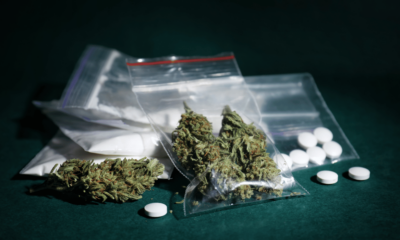The legalisation of cannabis for recreational use in two states in the US has not been associated with any rise in the number of substance abuse admissions, according to new data.
The introduction of laws in Colorado and Washington, legalising the sale of adult-use cannabis, is not associated with any increase in the number of teens or young adults seeking treatment for substance abuse of either opioids, cocaine, or methamphetamine.
Researchers from Temple University in Philadelphia and the University of Tennessee in Knoxville compared pre- and post-legalisation trajectories of substance abuse treatment admissions rates in Colorado and Washington to a set of other US states that did not legalise recreational cannabis use.
Specifically, investigators assessed treatment admissions for opioids, cocaine, and methamphetamine among those between 12 and 24 years of age.
According to the data published in the Journal of Substance Abuse Treatment, authors did not identify any rise in drug treatment admissions in either state following legalisation.
Additionally, the treatment trajectories in those states did not significantly differ from comparable states that did not liberalise their cannabis laws.
They reported: “To the best of our knowledge, this is the first study to investigate whether RML [recreational marijuana legalisation] in the U.S. led to an increase in SUD [substance use disorder] treatment admissions [for] illicit drugs other than marijuana.
“We found that the legalisation of recreational marijuana use in Colorado and Washington did not result in an increase in SUD treatment admissions for cocaine, opioids, or methamphetamines among adolescents or emerging adults.”
Commenting on the study’s findings, NORML’s Deputy Director Paul Armentano said: “This data further undermines long standing claims that marijuana acts as any sort of a ‘gateway’ to the abuse of other controlled substances – an allegation that has, historically, largely guided prohibitionist-based marijuana policies in the United States despite a lack of hard evidence.”
Separate data released late last year by the US Centre for Disease Control similarly reported that the number of adolescents admitted to drug treatment programs for cannabis-related issues has fallen precipitously in states that have legalised and regulated its adult-use.
Data published in 2019 in the journal JAMA Pediatrics also reported that the enactment of laws regulating the use of cannabis by adults is associated with declines in self-reported cannabis use by young people.
Full text of the study, “Treatment admissions for opioids, cocaine, and methamphetamines among adolescents and emerging adults after legalization of recreational marijuana,” appears in the Journal of Substance Abuse Treatment.

 News6 months ago
News6 months ago
 Science5 months ago
Science5 months ago
 Industry6 months ago
Industry6 months ago
 News6 months ago
News6 months ago
 News5 months ago
News5 months ago
 Health5 months ago
Health5 months ago
 News5 months ago
News5 months ago
 Health3 months ago
Health3 months ago












